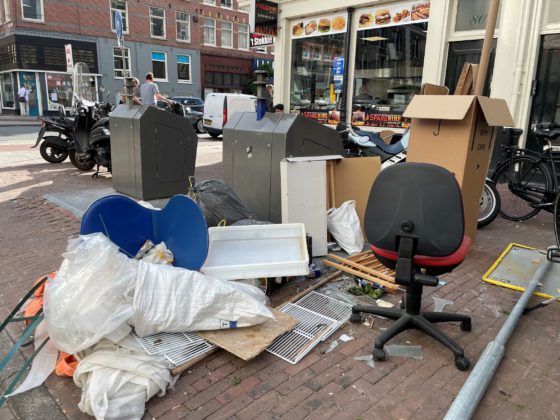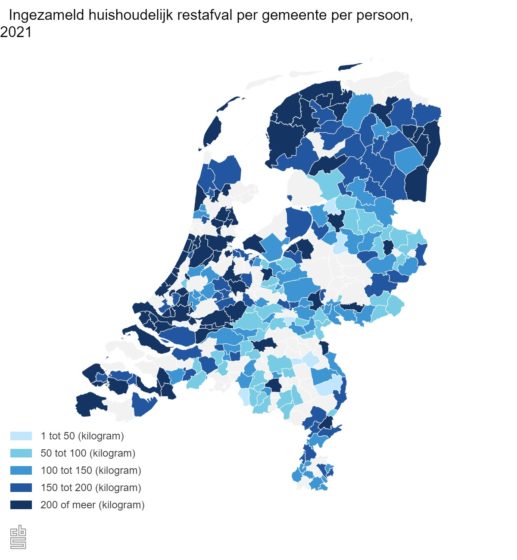Rubbish: how much waste does your area produce?


People living in rural areas create more municipal rubbish than those in cities, according to a new report by Dutch statistics office CBS.
Rural municipalities collect 606 kg of rubbish per person per year, compared with 428 kg for those living in cities – and most of the difference is in organic and garden waste, which cities do not tend to collect separately.
The CBS compared different areas across the Netherlands by whether they were very built-up, strongly built up, rather built up, hardly or not at all like cities.
In the largest cities, rubbish services collected 274 kg of general waste per person per year, 34 kg of organic waste, 30 kg of paper, 18 kg of glass and 71 kg of other waste. In the more rural areas, people were much better at recycling.

The smallest villages recycled the most paper (61 kg per resident) and organic waste. Outside the cities, glass recycling was 22 kg to 24 kg per person.
Areas that collected the most organic waste were Meerssen, Westerveld and West Maas en Waal, and the least was recycled in Amsterdam (1 kg per person) and The Hague (13 kg).
People living in the Wadden islands had the most waste per person (especially glass) and the place with the least rubbish was Reusel-De Mierden in North Brabant, with 20 kg of waste per person in 2021.
Thank you for donating to DutchNews.nl.
We could not provide the Dutch News service, and keep it free of charge, without the generous support of our readers. Your donations allow us to report on issues you tell us matter, and provide you with a summary of the most important Dutch news each day.
Make a donation